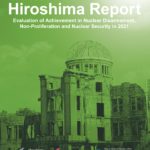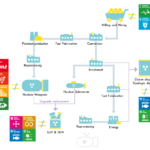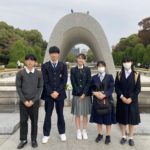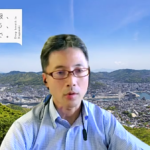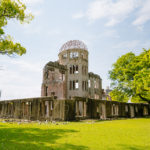“HOPe Youth Ambassadors for a Nuclear Weapon-Free and Sustainable Future” Interview
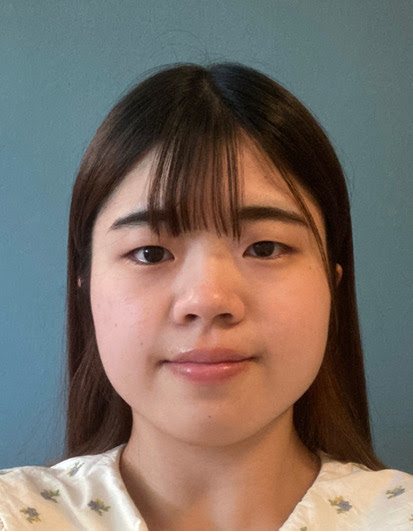
Sato Yuumi.
In November 2021, the Hiroshima Organization for Global Peace (HOPe) appointed three HOPe Youth Ambassadors for a Nuclear Weapon-Free and Sustainable Future. They represent a generation of youths concerned about the nexus between nuclear weapons and our sustainable future. We spoke with Ms. Sato Yuumi, who grew up in Hiroshima and is currently studying at the Free University of Berlin in Germany. Here’s our interview with her regarding her activities as a HOPe Youth Ambassador, and her experiences in Germany.

(Free University of Berlin)
●About the HOPe Youth Ambassadorship
My grandmother was a survivor of the atomic bombing, and my mother was a guide at the Peace Memorial Park, so I have always had an interest in peace issues and learning about the atomic bombing. When I was in high school, I participated in Global Mirai Juku in Hiroshima (“Future Leaders’ Program for Global Peace”), and learned about the horrors of nuclear weapons and nuclear issues. Later, I moved to Tokyo for college. Unlike Hiroshima, a lot of people I met in Tokyo didn’t even know when the atomic bombs were dropped. I decided I had to share information about peace myself, and applied for this HOPe Youth Ambassadorship.
After I became a Youth Ambassador, I learned about the existence of so-called “Global Hibakusha,” the people who have been affected by nuclear tests and development. I also joined a workshop on making proposals with 20 youths from all over the nation. We discussed how to express the ideas to connect the SDGs and the nuclear weapons issues using tools and perspectives unique to younger generations. Two other youth ambassadors went to the United States to participate in the Nuclear Non-proliferation Treaty (NPT) Review Conference. We plan to promote initiatives to help people learn about Hiroshima and beyond via social media.
●Things I noticed in Berlin
I joined my university’s exchange program to study in Berlin starting in September 2022. I chose to study in Germany because I thought it would be interesting to compare their approach to the war in contrast with Japan, as both Japan and Germany have made remarkable post-war developments despite their defeats.
What surprised me the most in Germany was the fact that there were initiatives to pass down the horrors of war everywhere you go. They have “stumbling stones” in the streets all over the country, each with the names and birth dates of the victims of the Nazis engraved onto 10cm square brass plates. Berlin has a number of facilities relating to the war, including a museum for Jews and a museum dedicated to the Nazi regime. The remains of the Kaiser Wilhelm Memorial Church and the Anhalter railway station are preserved, damaged as they were by the air raids. You can feel that the entire country is working to pass down the legacy of the war to future generations.

(Stumbling stones)

(Kaiser Wilhelm Memorial Church)
●Differences with Japan
The fact the Nazi’s started the war is no way justifiable. I’m impressed with how the post-war generations have been dedicated to pass down its history. Japan also has some similar reminder of that war, like the Atomic Bomb Dome, but I’ve never seen a building in Tokyo that tells us of the air raids of 1945. Both Berlin and Tokyo are capital cities, but the number of buildings preserved after the war differs greatly.
We might have faced the fact of the war differently. Germany has remorse for being a perpetrator, and their strong desire not to repeat the tragedies of the past is so clear even to me. In Japan, Hiroshima and Nagasaki speak out loudly about the horrors of war, but I hope we see more of this from the entirety of Japan.

(Memorial to the Murdered Jews of Europe)
●About the Future
When I introduce myself in Germany, I tell people that I’m from Hiroshima, and that my grandmother was a survivor of the atomic bombing. Almost everyone knows about Hiroshima, but people ask things like, “Is the city still radioactive?” “No one lives in there, right?”, which shocked me. People know that the atomic bomb was dropped there, but nothing about the subsequent reconstruction, how the city is now, or the extent of the damage caused by the bombing. This made my desire to spread information about peace even stronger.
I hope to continue my studies abroad, I feel so much stronger than ever. No matter where I am, Hiroshima is my identity. In the future, I would like to have a career where I can work on the elimination of nuclear weapons.
Ms. Sato Yuumi is a junior at the International Christian University, majoring peace studies. She loves to travel and enjoys visiting museums and art galleries in Berlin.
Tags associated with this article



